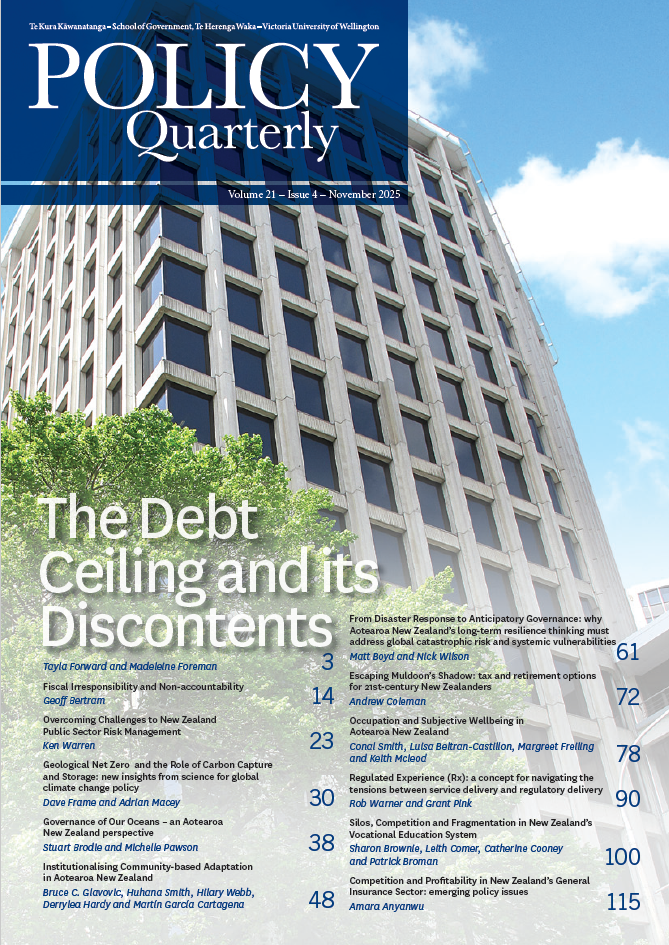From Disaster Response to Anticipatory Governance: why Aotearoa New Zealand’s long-term resilience thinking must address global catastrophic risk and systemic vulnerabilities
DOI:
https://doi.org/10.26686/pq.v21i4.10337Keywords:
anticipatory governance, disaster risk reduction, global catastrophic risk, polycrisis, metacrisis, resilience, systemic riskAbstract
The Department of the Prime Minister and Cabinet’s 2025 draft briefing on long-term hazard resilience is commendable in emphasising anticipatory governance. However, it still exemplifies broader limitations in risk assessment focusing on familiar local natural hazards while excluding global catastrophic risk. We examine how current risk reduction approaches remain trapped within frameworks addressing symptoms rather than systemic forces. Effective resilience requires expanding hazard scope to include global hazards: large-scale (nuclear) conflict, large global volcanic eruptions, and bioengineered pandemics. Building resilience to these and similar risks requires recognising cascade dynamics and implementing transparent approaches to generalised resilience to ensure basic needs.
Downloads
Downloads
Published
Issue
Section
License
Permission: In the interest of promoting debate and wider dissemination, the IGPS encourages use of all or part of the articles appearing in PQ, where there is no element of commercial gain. Appropriate acknowledgement of both author and source should be made in all cases. Please direct requests for permission to reprint articles from this publication to Policy-Quarterly@vuw.ac.nz.



